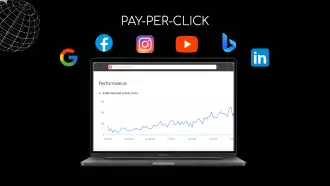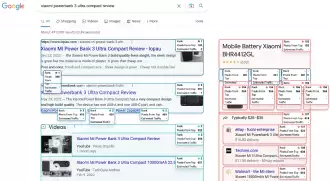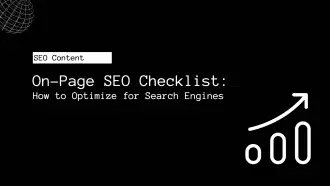If you are looking to maximize the results of your PPC campaigns, then you must understand the importance of quality scores.
Quality score is a crucial factor in determining the success of your PPC campaign. It is the metric that Google uses to determine the relevance and usefulness of your ads to users.
A higher quality score translates to lower costs per click, higher ad placements, and increased traffic to your website. In this article, we will discuss 15 strategies that will help you boost your quality score in PPC.
Understanding Quality Score
Quality score is a metric that Google uses to rate the quality and relevance of your ads, keywords, and landing pages. Quality score is on a scale of 1 to 10, with 10 being the highest possible score.
It is based on three factors, which are the click-through rate (CTR), ad relevance, and landing page experience. These three factors work together to determine how useful and relevant your ad is to the user.
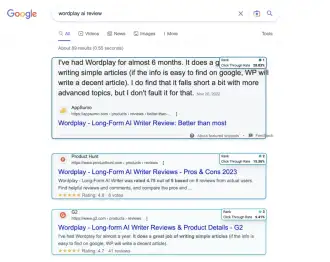
The Factors That Affect Quality Score
Several factors affect your quality score. These factors include:
- CTR: The click-through rate measures the number of clicks your ad receives relative to the number of impressions it generates.
- Ad relevance: Ad relevance measures how relevant your ad is to the user’s search query.
- Landing page experience: Landing page experience measures the relevance and usefulness of your landing page to the user.
Request Free Review
We start by reviewing your website and then take a look at your current ranking in SERPs.
- Unlock Your Website’s Potential with Our Comprehensive Analysis.
- Outrank Your Competitors with Our Expert Insights and Recommendations.
- Ways for increasing website traffic.
- Get Tailored Recommendations to Achieve Better Results Online.
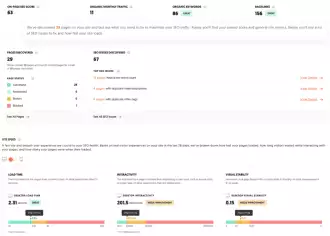
Importance of Quality Score
The importance of quality scores cannot be overemphasized. A higher quality score translates to lower costs per click, higher ad placements, and increased traffic to your website.
A low-quality score, on the other hand, results in higher costs per click, lower ad placements, and reduced traffic to your website.
15 Strategies to Boost Your Quality Score in PPC
1. Conducting Keyword Research
Conducting keyword research is the first step to boosting your quality score. By researching your keywords, you will be able to identify the most relevant and high-performing keywords to use in your campaigns. Use keyword research tools to find long-tail keywords with low competition but high search volume.
2. Creating Relevant Ad Groups
Organizing your ads into relevant ad groups is crucial to boosting your quality score. By creating ad groups that are closely related to your keywords, you will be able to create more relevant ads that are tailored to the user’s search query.
3. Crafting Compelling Ad Copy
Crafting compelling ad copy is essential to getting users to click on your ads. Use a strong headline, clear call-to-action, and relevant keywords in your ad copy to make your ads more appealing to users.
For creating authentic and effective messaging that resonates with target audiences. One of the most important things to remember is to focus on the value proposition for the customer, rather than talking solely about the business itself.
It’s also crucial to appeal to the emotions of the viewer, highlighting how the product or service can solve a specific problem they may be facing.
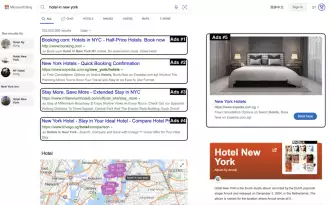
4. Adding Ad Extensions
Ad extensions are additional pieces of information that appear beneath your ad. They provide users with more relevant information about your business, products, and services. By adding ad extensions, you can increase the relevance and usefulness of your ads.
5. Optimizing Landing Pages
1. The Importance of PPC Landing Page Optimization: The ultimate goal of PPC landing page optimization is to engage your target audience and drive more leads through paid search. It’s highly beneficial but also highly competitive.
2. Best Practices Every Marketer Needs: Every marketer needs to know these best practices to give their ads a boost, including implementing a great design that’s both functional and appealing, optimizing each page element to maximize high-quality leads, and creating unique landing pages for eCommerce PPC.
3. Fundamental SEO and PPC Landing Pages: This article will give you an introduction to landing pages, as well as the fundamentals of making SEO and paid search landing pages for better results.
4. Dedicated and Good Looking Landing Pages: If you’re not getting conversions despite a well-designed PPC campaign, dedicated and good-looking landing pages are crucial to attract targeted traffic to your website.
5. The Swiss Army Knife of SEO Tools: A PPC ad should direct the user to an optimized landing page, not your website’s homepage. A key tool for achieving this is the Swiss Army Knife of SEO Tools which uncovers serious technical SEO problems and crawls top landing pages.
Remember, optimizing PPC landing pages leads to higher quality leads through paid search, which ultimately boosts your bottom line.
6. Improving Website Speed
Website speed is a crucial factor in determining the success of your PPC campaign. A slow-loading website can negatively impact your ad’s performance and user experience. Ensure that your website is optimized for speed by compressing images, reducing server response time, and minimizing HTTP requests.
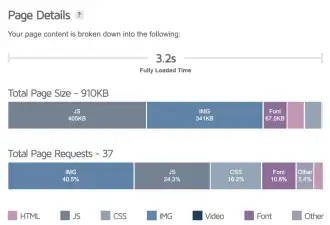
7. Increasing Click-Through Rates
Increasing your click-through rate is one of the most effective ways to boost your quality score. Use compelling ad copy, relevant keywords, and ad extensions to increase the likelihood of users clicking on your ads.
8. Reducing Bounce Rates
Bounce rates refer to the number of users who leave your website after visiting just one page. High bounce rates can negatively impact your quality score. To reduce your bounce rates, ensure that your landing pages are relevant, easy to navigate, and provide users with the information they are looking for.
9. Improving Ad Relevance
Improving ad relevance is critical to boosting your quality score. Ensure that your ads are relevant to the user’s search query and that they match the keywords in your ad group.
1. Create Specific Ad Groups
To improve ad relevance, it’s important to create specific ad groups. This will help you target your ads more effectively and increase the chances that they will be clicked.
2. Group Your Keywords Carefully
It’s important to group your keywords carefully in order to improve ad relevance. Make sure that your keywords are related and that they fit together logically.
3. Review Your Quality Score Components
Reviewing your quality score components is a great way to improve ad relevance. Take a look at your expected clickthrough rate and your ad relevance. Make adjustments if you need to.
4. Create Tightly-Themed Ad Groups with Only Related Keywords
Creating tightly-themed ad groups with only related keywords is another great way to improve ad relevance. This will help you target your ads more effectively and increase the likelihood that they will be clicked.
5. Restructure Your Campaigns and Ad Groups
If you’re not seeing the results you want, consider restructuring your campaigns and ad groups. Look for ways to improve your ad relevance and make adjustments as needed.
10. Testing Ad Variations
Testing different variations of your ads is crucial to identifying which ad copy, headlines, and calls-to-action are most effective. Use A/B testing to determine which variations perform best and then optimize your campaigns accordingly.
11. Using Negative Keywords
Negative keywords are keywords that you do not want to trigger your ads. By using negative keywords, you can ensure that your ads are only shown to users who are likely to be interested in your products or services.
12. Implementing Geographic Targeting
Geographic targeting allows you to target users based on their location. By targeting users in specific geographic locations, you can increase the relevance of your ads and improve your click-through rates.
13. Increasing Ad Quality
Improving the quality of your ads is crucial to boosting your quality score. Ensure that your ads are well-written, relevant, and tailored to the user’s search query.
14. Improving User Experience
Improving the user experience is essential to boosting your quality score. Ensure that your landing pages are easy to navigate, load quickly, and provide users with the information they are looking for.
15. Continuously Monitoring and Adjusting Your Campaigns
Continuously monitoring and adjusting your campaigns is crucial to ensuring that they are optimized for success. Monitor your campaigns regularly and make adjustments to your keywords, ad copy, and targeting as needed.
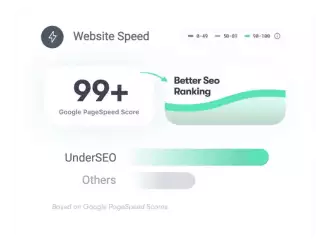
Need Some Help?
PPC’s Guide: Boosting Your Quality Score in PPC For 2025
FAQs
What is the quality score in PPC?
Quality score is a metric that Google uses to rate the quality and relevance of your ads, keywords, and landing pages.
How does quality score impact PPC campaigns?
A higher quality score translates to lower costs per click, higher ad placements, and increased traffic to your website.
What factors affect quality scores?
Quality score is based on three factors, which are the click-through rate (CTR), ad relevance, and landing page experience.
How can I improve my quality score in PPC?
Improving your quality score in PPC involves conducting keyword research, creating relevant ad groups, crafting compelling ad copy, adding ad extensions, optimizing landing pages, improving website speed, increasing click-through rates, reducing bounce rates, improving ad relevance, testing ad variations, using negative keywords, implementing geographic targeting, increasing ad quality, improving user experience, and continuously monitoring and adjusting your campaigns.
Can a high-quality score guarantee success in PPC?
While a high-quality score is important for the success of your PPC campaigns, it does not guarantee success. Other factors such as budget, competition, and market trends can also affect the success of your campaigns.
How often should I monitor and adjust my PPC campaigns?
You should monitor and adjust your PPC campaigns regularly to ensure that they are optimized for success. The frequency of monitoring and adjustments will depend on the size and complexity of your campaigns, but it’s generally recommended to check them at least once a week.
Can I boost my quality score quickly?
Boosting your quality score takes time and effort. While some strategies such as improving ad relevance and increasing click-through rates can have an immediate impact, others such as improving website speed and user experience may take longer to show results.
How do I know if my quality score is improving?
You can monitor your quality score in Google Ads and track changes over time. A higher quality score indicates that your ads are more relevant and useful to users, resulting in lower costs per click and higher ad placements.
Is quality score the only metric that matters in PPC?
No, quality score is one of several metrics that matter in PPC. Other important metrics include click-through rate, conversion rate, cost per conversion, return on ad spend, and overall ROI.
Can I improve my quality score without spending more money?
Yes, improving your quality score does not necessarily require spending more money. By optimizing your campaigns, improving ad relevance, and enhancing user experience, you can improve your quality score without increasing your budget.
Conclusion
Boosting your quality score in PPC is crucial to maximizing the success of your campaigns. By following the 15 strategies outlined in this article, you can improve the relevance, usefulness, and effectiveness of your ads, resulting in lower costs per click, higher ad placements, and increased traffic to your website.

